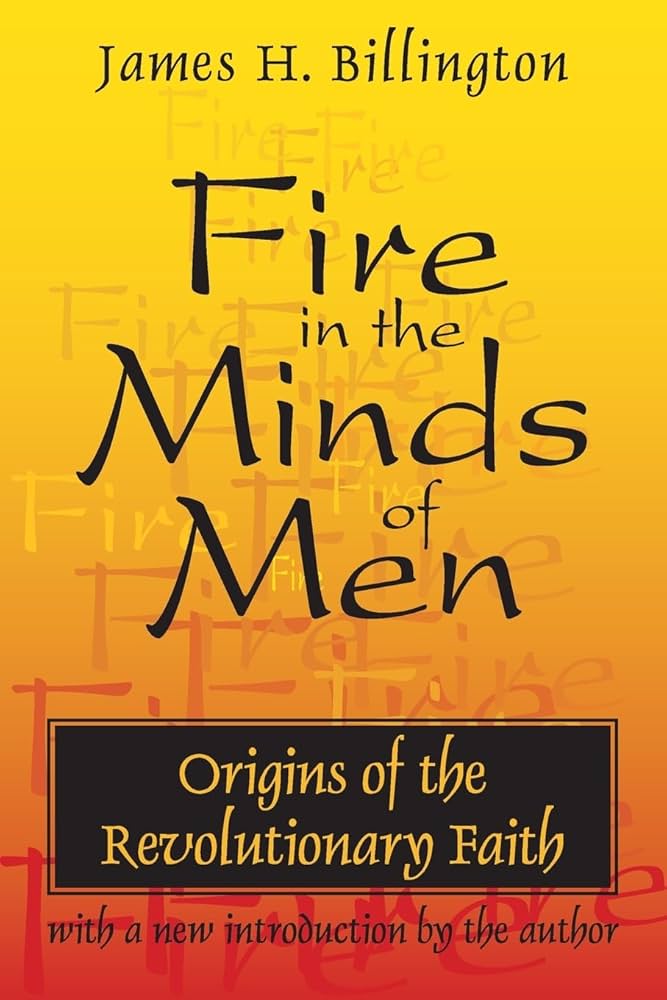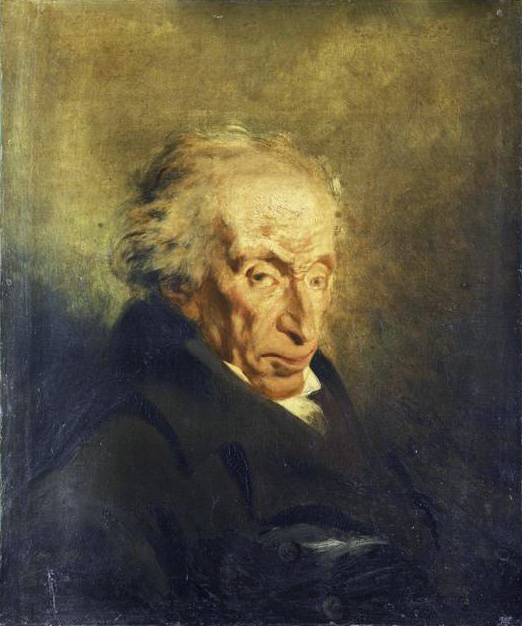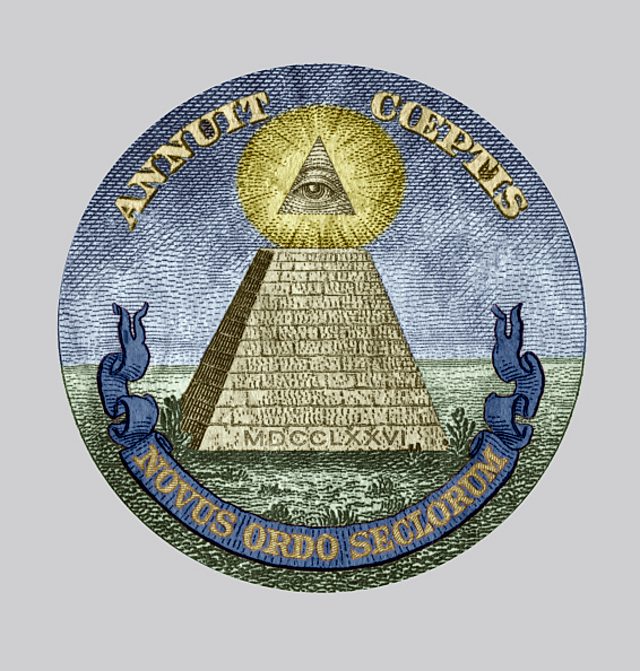Introduction
Gamergate. Perhaps, you have heard the word recently. Perhaps, you know what had happened.
Perhaps, I used to believe that it was nothing more than an online drama, where some gamers had a meltdown on social media. Until I did my own research. I believe we must do our own research whether it is in science, history, or any other subject. Therefore, we should avoid believing blindly in the mainstream media that suggests you should not do your own research with this Forbes article You Must Not 'Do Your Own Research' When It Comes To Science by Ethan Siegel. It stated that doing your own research was collecting information to confirm your biases and discredit contrary opinions. You should yourself check the Forbes article and know what it stated. But the same attitude of confirming biases and discredit contrary opinions is found in the mainstream media narrative when it covered the gamergate controversy. And, we will see that the gamergate is a lot more than just an infantile online distraction, which the mainstream media tries hard to make us believe.
Recently, I read an article How Gamergate foreshadowed the toxic hellscape that the internet has now become by Harmeet Kaur, the culture writer for CNN. It sparked my interest in writing about the gamergate saga. It references some articles important to this article to know about gamergate and its consequences. I will highly recommend you to read it.
Gamergate
To know about the origins of gamergate, I came across a New Yorker article published in 2014, Zoe Quinn’s Depression Quest by Simon Parkin. It is about a video game called Depression Quest, designed in 2013 by Zoe Quinn and criticisms about it started the online brawl of gamergate. According to the article, the game was published on Steam on the day the news of Robin Williams' suicide broke. The article mentioned that the ex-boyfriend of Zoe Quinn alleged an intimate relationship between her and a gaming journalist who wrote about her game. The critics claimed that Quinn manipulated the journalist to write a review for her game. They also claimed that doing so, violated the ethics of constructive criticism. On the other hand, the article asserts that the criticism was a pretense of an online harassment against women in gaming industry. This led to the rise of #gamergate. So, you should read this article and know where and when did gamergate start.
Thus, the gamergate took off, which led ArsTechnica to publish an article, Chat logs show how 4chan users created #GamerGate controversy by Casey Johnston. I have mentioned this article since it is about the main classification about the main belligerents of gamergate. This article stated that chat logs revealed that a handful of 4chan users were ultimately behind gamergate. It stated that the ethics discussion brought in Anita Sarkeesian, the founder of Feminist Frequency—a video series aimed at exploring systemic misogyny in gaming industry. She had faced online harassment for her tweets against the gamergate. The article discussed the identity of "gamer". It stated that the gamers accused the corrupt system that had let Quinn and Sarkeesian in the gaming industry. Thus, gamergate became a battleground between feminists, who accussed gamergaters of a misogynistic online harassment campaign, and gamergaters, who sought to protect the identity of gamers and ethics in the gaming journalism from feminist influence. So, reading the article, you would know about the parties involved.

It then became a buzzword that even NGOs like World Economic Forum(WEF) highlighted gamergate as the Top 10 tech stories of 2014. I have mentioned this article to point out that how serious gamergate had become, according to the mainstream media that think–tanks began discussing it. The article claimed that the gamers accussed that the gaming journalism was corrupt and prone to feminist influence while their opponents labelled them as misogynists. Going through this WEF article will let you know that establishment think–tanks and NGOs were invested into this controversy. So, by no means it can be called a remote online quarrell.
With the passing time, the discussion went ahead from gaming journalism to the talks about a classic culture war. A Columbia Journalism Review article How do we know what we know about #Gamergate? by Chris Ip, that stated the gamergate as a movement was a classic culture war. As think–tanks were raising their voices against gamergaters along with the mainstream media, then this controvery became the focal point of a culture war. I would recommend you to go through this CJR article.
If gamergate could become a culture war, there were concerns about future culture wars, which I found in the Deadspin article The Future Of The Culture Wars Is Here, And It’s Gamergate by Kyle Wagner. It mentioned that a game developer named Brianna Wu fled her home after an online stalker threatened her. It stated that gamergate was associated with outlandish claims of conspiracy about game developers and journalists. And that gamergate consisted of self-appointed specialists of gaming journalism, and dedicated misogynists. It implied that how gamergate would be used as a model for future internet skirmishes. You should check this Deadspin article as it claimed the future internet culture wars would be based upon the gamergate saga.

I believe that the culture war is incomplete without radical sides. Thus, I will mention a writer for Guardian, BBC, and other mainstream news outlets, Damian G. Walter, counted the last days of gamergate in his article The last days of #GamerGate …actually it’s dead now. This article claimed that gamergate proponents like many radicalised movements, represented a small minority who made loud noises to gain attention, and that its members have become domestic terrorists and a vast majority did come out against gamergate. Radicalised movement and domestic terrorism, if you have heard those phrases, you should definitely check Damien G. Walter"s article.
So, here I found that the think–tanks were thinking of suggesting a possible solution to the gamergate. Another WEF article in 2015, pointed that how sexism was prevalent in gaming. The article How to tackle gender-based violence online by Khalil Goga mentioned that the gamergate highlighted that sexism had become prevalent in video game culture. It stated that feminist activist Anita Sarkeesian's private details including her home address were made public and she had received threats that made her analyse the representation of women in video games. You should read about the problem highlighted and researching of solutions in the mentioned article.
Social Media and Censorship
According to mainstream media, the main reason behind gamergate's expansion was identified as the failure of social media giants in dealing with online abuse. It was expoused in this article that you should check; Twitter CEO: 'We suck at dealing with abuse' by Nitasha Tiku and Casey Newton. It was mentioned in the article that the then Twitter(now X) CEO Dick Costolo took personal responsibility for his platform's chronic problems with harassment and abuse, and he told his employees that he was embarrassed for the company's failures and would be taking strong actions to eliminate trolls. The article stated his acknowledgement that the trolls were costing Twitter users. You should check The Verge article that trolls on social media became the main target to bash.

To counter trolls, some aggressive steps were taken. In 2017 CNN reported about Twitter's announcement of aggressive content moderation policies in the article Following backlash, Twitter clarifies what violates its policies by Sara Ashley O’Brien. It stated that the then Twitter CEO Jack Dorsey promised more transparency and aggressive content moderation policies. It included ban on doxxing, harassment, promotion of self-harm, etc. You should check the CNN article how gamergate became the focal point for aggressive content policies.
The mainstream media itself pointed towards a conspiracy, not from trolls but from Russia. An NBC news article Russia's Social Media Propaganda Was Hiding in Plain Sight by Sarah Kendzior, stated that gamergate being a misogynistic campaign had several protagonists like Milo Yiannopoulos. They were accussed of participating in it and were tied to the Trump Presidential campaign. And such attempts were part of a Russian propaganda. You must check the NBC news article as how gamergate and Russiagate colluded together.
I searched further and found that opponents of gamergaters were so frustrated. In 2019, this opinion piece on New York Times, a collection of four articles, said, ""Everything is Gamergate"!" The title of the collection is enough to state that gamergate was no longer allegations from an ex-boyfriend but everything on the internet. You should also check the New York Times articles.
Earlier, the think–tanks thought for a solution, and in 2019 they came out with one. The solution to avoid the gamergate-like secanrios, WEF article For video games to reach the next level we need more women coders. It mentioned gamergate, where video game fans, mostly men, lashed back aggressively online against criticism about sexism in gaming industry. More women in gaming industry would end the culture war of gamergate, this World Economic Forum article is worth your reading.
I found this interesting. After Elon Musk bought Twitter in 2022, a Los Angeles Times article Twitter was at the forefront of content moderation. What comes next? by Suhauna Hussain and Brian Contreras. It stated that gamergate was a targetted online harassment campaign against women like Brianna Wu, that received protection from inept online platform. But Twitter's prompt action served as an early example of a company's to thwart abuse. Twitter's then vice president of trust and safety reached out to hear concerns and offer support and made real efforts to engage with critics like Wu. It mentioned that Twitter had led efforts to create safety policies and enforce high-profile violations of its rules. It had permanently suspended right–wing provocateur Milo Yiannopoulos in 2016 and conspiracy theorist Alex Jones in 2018. You should read the Los Angeles Times article, and see that how trolls, gamergaters, and conspiracy theorists were entangled together to justify the banning of their social media accounts, and a speech that has become censored over the years.
Not to forget about memes. Since, gamergate took off there has been a tsunami of memes. And so, gamergate had caused a meme war. Axios reported How the far right borrowed its online moves from gamers by Ina Fried. It mentioned about a book named Meme Wars by Joan Donovan and coauthored by Emily Dreyfuss and Brian Friedberg. The article stated that the far–right learned from gamergate to achieve real world political gains, and apply those strategies in mainstream politics in Donald Trump's 2016 Presidential election campaign, along with online attacks. The bottomline from the article was that social media can become amplifier of harassment. How memes made Donald Trump win 2016 election? You must check the Axios article.
Future culture wars? In 2024, according to Guardian, gamergate made a comeback after 10 years of its inception, an article The disturbing online misogyny of Gamergate has returned — if it ever went away by Keza MacDonald. It stated that gamergaters used to get upset with the acronym of SJW or social justice warriors, which had been replaced with DEI(diversity, equality, and inclusion).How gamergate vilified the writing about games from a feminist perspective through doxxing and online harassment. As I mentioned earlier, the confirmation bias is towards the feminist narrative of the gamergate, and therefore, you must read through the Guardian article.
After reading the articles mentioned above, you must accept gamergate as nothing more than an online harassment, and resist it at all costs while supporting totalitarian online censorship of content and mass surveillance to keep the social media platforms safe from harassment and trolls. Otherwise, you will be called a misogynist, racist, alt–right, and what not!? So, follow the mainstream narrative or…
You may have noticed the links to mainstream media (MSM) articles that are shaping up the mainstream narrative of the gamergate as a right–wing misogynistic online movement attacking feminist game designers and journalists. Going through James Corbett's article How the CIA Plants News Stories in the Media, it was no longer disputed that the CIA had maintained an extensive and ongoing relationship with news organizations and journalists. I highly recommend you to check James Corbett’s exposition on the mainstream media. Therefore, now you must know that the mainstream media is a part of the Establishment. So, it's the establishment narrative.
Fire in the Minds of Men
To understand the gamergate controversy and its establishment narrative, which talks about a classic culture war, there is a book named Fire in the Minds of Men written by James H. Billington. Recently, I had read this book to uncover the main objective that was achieved through gamergate, and it will be continued if we don't see through this game. So, you should also necessarily read this book.

James H. Billington was the 13th Librarian of Congress under Reagan administration. So, he was an establishment figure. And his book bears the Library of Congress Classification. Therefore, Fire in the Minds of Men is an establishment book. It contains a detailed historical account of revolutions that took place between late 18th century to early 20th century. It has an adequate analysis with external references for the origins of the left–right political dynamics and their effects on the society. Reading this book, helped me decipher the establishment narrative of the gamergate, since gamergate—the core of the culture war—involved the right and left wing political interactions. The first part of this book explains this interaction during the French revolution in detail.

I say, “The gamergate was a revolution and it will never end in the foreseeable future.” Since, gamergate has been framed as a culture war between feminists(the left) and gamergaters(associated with the right), we will analyze the first part of this book, Foundations of the Revolutionary Faith, that deals with the origin of revolutionaries, and their rise into factions of left and right, and their mindset to prove that this statement is true. This will reveal the intentions behind gamergate and question the establishment narrative.
The book explains the origins of the revolutionary faith, the common worldview of all the revolutionaries till date. The French revolution has been explained in detail that instilled this worldview in its admirers or revolutionaries.
Bonneville and Feminism
One of the revolutionaries was Nicholas Bonneville. He is stated in the chapter, The Locus of Legitimacy, as the most original pioneer of revolutionary journalism. He believed that journalism was the superior power than the Church and the state. This power had the right and obligation to conduct censorship and criticism. He believed that a journalist's mission was to protect the "good" citizens—who were not enlightened as the revolutionary journalist—from ideas that countered the narrative of the revolution. Adding to the censorship, Bonneville believed that through journalism to know the general mindset of the people—a tool of universal surveillance.

Bonneville thought that journals could weaponize the use of language employing the universal language of sighs and tears—emotionally charge the readers. He used to run his own journal from Palais–Royal in Paris through a secret inner group called the Social Circle.
Social Circle consisted of an inner group and journal La Bouche—the mouth—that acted as an interpreter of truth—the revolutionary propaganda—for those outside. This secret group had international correspondence centers. It resembled the superior intelligence—an inner intellectual circle—of a secret international movement. With the help of one of his English friends, John Oswald, Bonneville created the Universal Confederation of the Friends of Truth. The Confederation advocated a grand social communion that would provide social benefits, universal progressive taxation, and extension of civic equality.
The Social Circle was the first to advocate feminism. It called for groups of women to accompany those of "free brothers". And those "free" brothers had to always agree with Bonneville and his secret group on every tenet, so that they could enjoy the absolute utopian egalitarianism, who otherwise would be called "reactionaries"—counter revolutionaries.
Since, the Social Circle originally advocated feminism and propagated it through the propaganda machinery of La Bouche, it is evident that feminism always approves the Social Circle's worldview for journalism. Use emotionally charged language, and as a tool to censor and suppress any form of opposition. Thus, Feminists also support a system that conducts mass surveillance of people to confirm if they support feminism or not.
Saint–Just and Misogyny
The French revolution gave us three ideals—liberty, fraternity, and equality. Reading the chapter named, The Objects of Belief, liberty meant the replacement of the monarchy and the Church with a republic. The revolution led to the execution of King Louis XVI and then drafting a radical constitution in 1793. Bonneville insisted on the sacredness of the constitution. It was to be carried like a holy object for the worship of the nation—the republic. It is stated that the main rivalry post the beheading of the king and liberty was between the proponents of the other two ideals—fraternity and equality.
During French revolution, the living icon for the ideal of fraternity was a young "saint" from Picardy named Louis–Antoine de Saint–Just. He worshipped the nation and its free brotherhood—the utopian egalitarians. He thought of the nation as a human body and any loss of its territories was like a painful amputation. He was fascinated and influenced by the sense of masculine comradery–in–arms. He showed his fraternal loyalty to the Jacobin dictator Maximilien Robespierre.

During Robespierre's Reign of Terror, the military fraternity in service, allowed no fraternization with women. A foreign threat was associated with the radical feminists—the secret international movement of the Social Circle. This led to a repressed feminine participation in the military and other activities. Such anti–feminine or misogynistic sentiment swept through Paris. The ideal of revolutionary fraternity, Saint–Just, would avoid all contact with women and led his struggle against factionalism of the nation and its "free" brotherhood.
The proponents of the gamergate or gamergaters criticized the feminist game designers on the pretext of protecting their "free" brotherhood—identity of gamer that they, the gamergaters, worshipped. They claimed to protect it from the political factionalism that the feminist game journalists were attempting.
It is clear that both feminism and misogyny come from the same revolutionary mindset. The classic historic culture clash between the ideals of fraternity and equality. The establishment media referred to this classical culture war. It raises the question that why the culture war or revolution took place circa 2014–2015 and once again in 2024? Wasn't the revolution over in 1790's? Or, in 1848? Or, in 1917? And, how can everything become gamergate?
Babeuf's conspiracy
In the same chapter, The Objects of Belief, Billington stated that during the Reign of Terror, Francois Noel Babeuf joined Bonneville's Social Circle. He founded a journal named Tribune of the People, which was the first ever journal to propagate the revolutionary Leftist propaganda. He thought that with the help of an international military, a coup could be mounted on Robespierre's Directorate of Public Safety. He considered himself as an anarchist—men who want to always make revolution.

Babeuf rejected the right to property in Rights of Man, arguing that the community should provide common happiness through perfect equality. He compiled his beliefs in his Plebeian Manifesto—the proto–Communist Manifesto. It aimed at a society of equals and dedicated to developing collectively commerce, agriculture, and industry—the proto–Communism. He believed that the community would replace all other systems of political and economic authority.
He tried to mount a secretly coordinated coup, which failed. With his failed conspiracy of the equals, there rose a myth of the unfinished revolution. Thus, the only justification to launch a new revolution was to ultimately end the unfinished revolution. And, he believed that a successful revolution would mean ending the spirit of domination. To end this spirit was to obey an elite hierarchy, and to avoid the tyranny of factions to accept a single leadership.
As per Billington, the essence of the conflict between the nationalist revolutionaries and the social revolutionaries was the conflict between the ideas of romanticism and rationalism.
In the gamergate saga, we see that the feminists—the social revolutionaries—intended that game designs and journalist reviews should be rationally inclusive for perfect equality in order to bring in common happiness. This common happiness was to come along with censoring the gamergaters and mass surveillance to identify and censor them. While, the gamergaters—the nationalist revolutionaries—saw the intention as a coordinated attack on their ideal romantic fraternal identity of the "gamer" that would be fragmented under the feminist control.
Babeuf's conspiracy and the classical conflict of ideals, give the perfect justification that gamergate was a revolution and it won't end, since every revolution is unfinished. Until the belligerents lose their spirit of domination, accepting a single leadership with an elite hierarchy that will dictate its terms on the society.
The Revolutionary Faith
We have seen that the gamergate is a revolution to usher in the control of a single elite leadership. The intensity with which its belligerents—feminists and gamergaters—clashed signify a common motivation on each side. Or, a common religiosity?
In the chapter, The Occult Origins of Organization, Billington has mentioned the arc of a revolutionary Filippo Giuseppe Maria Lodovico Buonarroti. Buonarroti took the idea of uncompleted revolution from Babeuf along with the idea that societal happiness would come only with perfect equality. He believed in the Rousseauian vision of pursuing societal happiness as the end goal of a revolution. His idea was to lead men back to nature where everyone would be happy and act according to their own will—a utopian idea of nature. He thought that for the revolution to be complete, the utopian idea of nature must be realized. And the main motivator to revolution would be moral Manichaenism—the revolutionaries as the agents of good against evil, tyranny and egoism.

The book mentioned in the chapter, The Occult Origins of the Organization, that Buonarroti developed his idea by visiting Masonic lodges. Masonry played a key role in the revolutionary system. It imparted the notion of an architect building a new and better structure for human society. And thus, rebuilding and reshaping the society. So were the Bavarian Order of Illuminists led by Adam Weishaupt in 1776, whose aim was to lead humanity to a new moral perfection freed from all established religious and political authority. Thus, Freemasonry, the Masonry freed from the influence of conservative Jesuits.

The Illuminists used a technique to discredit their conservative rival order, the Jesuits, using fair means—by helping conference of occult orders at Wilhelmsbad in 1782 to determine that the Strict Observance Lodges were not in fact descended from the Knights–Templar—and foul—by arguing that the Strict Observance Lodges were secretly controlled by superiors who were Jesuits in disguise. Jesuits had to be driven out of Masonry by some new order opposed to tyrants and priests. The secular Illuminism struggled with Roman Catholicism.
The highest degree of the Illuminist hierarchy called the areopagite, who would secretly control and manage territorial deacons, supervise propaganda, and lead a fully egalitarian life. According to Bonneville, the title of Citizen of a nation was to be considered as a Freemasonic degree of the lowest level—not enlightened. The purpose of ascending the Illuminist hierarchy was to be remade into a totally loyal servant of a universal mission—to usher in the egalitarian utopia of a society—combined with Bonneville's idea of an areopagite—the man, made god–without–God. This Illuminist idea also resonated with right–wing nationalist revolutionaries like Saint–Just and Desmoulins in Picardy, and with Dietrich and Schneider in Strasbourg.
The structure of revolutionary organizations followed the structure of the Jesuits that the Illuminists imitated. An outer circle of a large mass of liberals who strived for universal suffrage(left) and popular institutions(right). The second inner circle of staunch democrats—the politicians. And, the final innermost circle of absolute egalitarianism. The book suggests that the Illuminist influence was clearly seen in the left–wing as well as in the right–wing revolutionaries.
Conclusions
In the scenario of gamergate, we see the influence of the Illuminist ideas. Both the gamergaters and the feminists wanted to act according to their will, with each of them assuming themselves as the Manichean moral agents of good and their opposition as evil. I will highly recommend you to read the Fire In The Minds Of Men to know the entire story of the revolutionary faith in detail.

Each of the side sought to be the architect of a new and better structure of the society through internet. And most importantly, to rebuild and reshape the society. The feminists through inclusive gaming while the gamergaters creating and preserving the romantic identity of the gamer intact. Thus, divided the internet users and gave rise to echo chambers.
The feminists blamed that the gamergaters were involved in an online misogynistic harassment, thus labelling them as misogynists. Misogynists were the conservative radical opposite to the radical equality of the egalitarians during the French revolution, and came forth from the same revolutionary millieu. It is the same method that the egalitarian Illuminists followed to discredit their rival order of conservative Jesuits.
Both parties sought to raise themselves to a more decision–making position in order to reshape the society hooked to the internet. They sought to rise from the non–enlightened citizen to the areopagite with full freedom and a utopian happiness to assert their will upon the society as they wanted to. Thus, dividing the society with the help of echo chambers and becoming the influencers.
And finally, as a revolution with occult origins, the gamergate sought to usher in the totalitarian thought police, an elite leadership, a new secular order, that will control people in a divided society, track and trace what the citizens post on the social media platforms, where do they spend their money, what content are they watching or allowed to watch, etc. Therefore, it was not an infantile online quarrell or a misogynistic nonsense as the establishment media depicts it to be, so that you would ignore it. The surveillance devices would be used to know the hearts and minds of the citizens, and they would be censored and penalized for posting anything that goes against the establishment narrative. So, do your own research into the Twitter Files.




